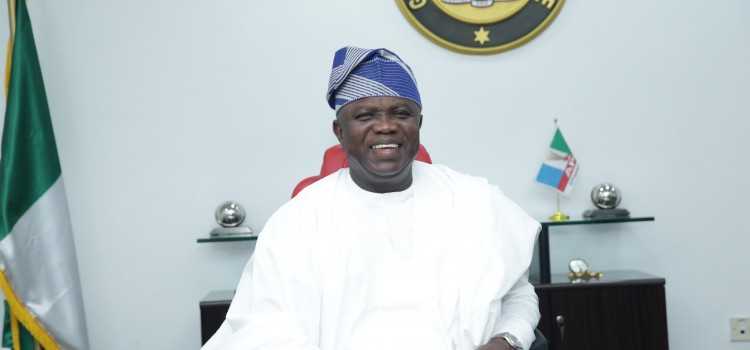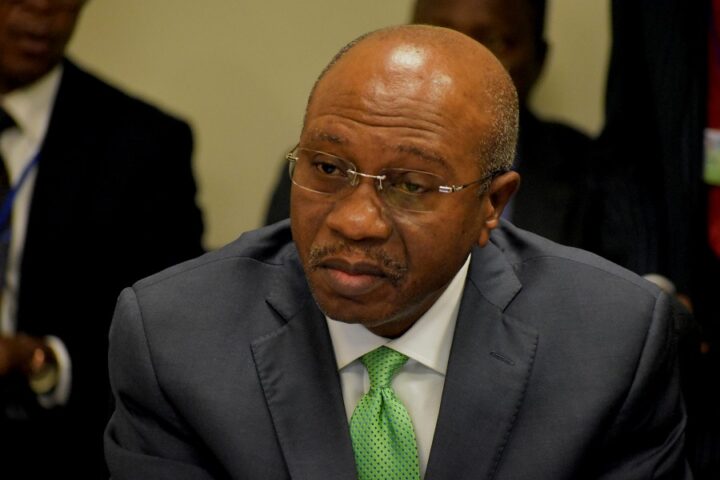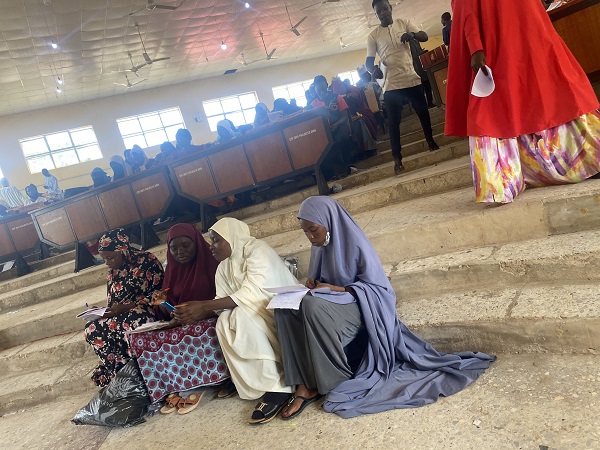AG PRESIDENT OSINBAJO VISIT N-POWER CENTRE 4B. Acting President Yemi Osinbajo SAN accompanied by SA on Social on Social Investment, Mrs Maryam Uwais, SSA Job creation/Youth Empowerment, Mr Afolabi Imoukhuede and others during a visit to the N-Power Response Centre in Abuja. PHOTO; SUNDAY AGHAEZE. JULY 14 2017
All over the world, social safety nets are tools the government uses to help vulnerable people tackle hunger and poverty. In Nigeria, successive governments have expressed concern about the country’s high poverty level despite being endowed with enormous resources. Programmes such as Operation Feed the Nation, Green Revolution, otherwise known as “Back to Land,” Directorate for Food, Roads, and Infrastructure, Directorate of Employment, Better Life Programme, Peoples Bank Project, Family Support Programme, National Economic Empowerment and Development Strategy, Subsidy Reinvestment and Empowerment Programme (SURE-P), and National Poverty Eradication Programme have been initiated at different times to tackle the high level of poverty in the country.
However, safety nets in Nigeria have holes. Many have described them as handouts that can not scratch the surface of the poverty levels in the country. In 2016, the Buhari administration established the National Social Investment Programme (NSIP) to combat poverty and hunger nationwide. The components of the administration’s SIP include the N-Power Programme, the National Home-Grown School Feeding Programme (NHGSFP), the Conditional Cash Transfer (CCT) programme, and the Government Enterprise and Empowerment Programme (GEEP), which consists of the MarketMoni, FarmerMoni, and TraderMoni schemes.
Howbeit, the programmes have been fraught with challenges such as corruption, shortsightedness, design error, inconsistency, paucity of funds, and lack of accountability, to mention a few. As someone who has benefitted from the N-Power Programme, for instance, it will be wrong to say there is no impact altogether. Still, the impact on society must be commensurate with the amount the government claims to spend on the different programmes. The government claims to be spending ₦500 billion yearly on “social investment programmes,” yet a 2022 report by the National Bureau of Statistics (NBS) showed that some 133 million Nigerians (62.9% of the population) are poor. That is so much for a government that claims to be working towards lifting 100 million people out of poverty.
Let me talk about the N-Power Programme a bit. As plausible as the programme appears, it has a poor design. The programme was meant to address the issues of youth unemployment and help increase social development. At its inception in June 2016, graduates who applied and were successful were employed in the different categories of N-teach, N-health, N-agro, and N-build. They were hired for two years and given a monthly stipend of ₦30,000. The youths would likely be empowered as the programme is named, but only beneficiaries under the first N-agro batch were trained before they started work. The beneficiaries would later be rolled back to the streets with nothing to fall back on.
Advertisement
How does the government hope to tackle unemployment this way? The result of this shortsightedness is obvious. Unemployment figures have been on the steady rise. It was 10.4% at the end of 2015 before the “life-saving” programme, but today, KPMG has projected that Nigeria’s unemployment rate is expected to rise to 40.6% compared to 2022’s 37.7%.
The federal government was committed to paying the monthly stipends as beneficiaries under the first two batches can testify. Still, the monthly payment became haphazard when the programme was moved in 2019 from the office of the Vice President to the newly created Ministry of Humanitarian Affairs, Disaster Management, and Social Development. Stipends could go unpaid for as long as three months, thus demoralising beneficiaries; many later saw the programme as a “side hustle” or a backup while they went about other forms of employment.
There was hardly any form of supervision from government officials. Independent monitors who supervised the programme under the Vice President were replaced when the programme was moved to a new ministry. Compromised officials also took advantage of the apparent gap in supervision to encourage truancy in the programme. They would have a pact with a beneficiary to get a portion of their stipends, and the beneficiary would disappear into thin air, simply getting the stipends as their portion of the“national cake.”
Advertisement
Can you blame some of the beneficiaries? How realistic is it for a graduate to sit still with a job paying ₦30,000 monthly, haphazardly, without a guarantee of being drafted into the workforce afterwards? Can ₦30,000 even lift one out of poverty in Nigeria today?
This poor design and implementation are apparent in the GEEP as well. Take a look at the Vice President’s Tradermoni. How much of these interest-free loans were recovered? According to Farouk Sadiya, the federal government was yet to recover ₦10 billion tradermoni loan three years after.
The programme was introduced with so much fanfare and looked like an answer to people’s needs. But how much impact can ₦10,000 have on a small business with rising inflation? Little wonder many of the traders saw the programme as a one-time, cash-out scheme. Well, blame it on the timing of the disbursement of the loans, and you may not be wrong. The programme was initiated in 2018 during the Presidential campaign and looked more like an electioneering tool.
A similar incident happened during the just-concluded election season. Some beneficiaries of the concluded N-Power batch (Batch C stream 1) got three-month stipends. For context, this batch completed its programme in August 2022. They had already been paid for a year, but some received credit alerts between February and March 2023. It was tagged “an act of minister’s generosity.” Such generosity comes during elections to a few “lucky” individuals. Feel free to make your conclusions, but it is clear that some of these social investment programmes are money-making tools for those who have access to government coffers.
Advertisement
What baffles me most is the lack of accountability that trails these disbursements. According to Seun Onigbinde of BudgIT, “I have not seen a coherent evaluation or assessment of those plans (referring to social investment programmes); it is just typical of Nigeria — spend the money, and nobody is given the rigour on the impact of the money. If you are putting ₦350 billion in a programme or even up to ₦500 billion in some instances, by the time you put the recurrent side to it, what impact are you getting from it?”
This is the same big question about the Home-grown School Feeding Programme. The government said it was feeding 10 million pupils in 66,000 public schools daily, and the initiative has reduced the number of out-of-school children in the country. When these statements are placed alongside the number of out-of-school children in the country, currently at 10.5 million according to a report by the United Nations Children Fund (UNICEF), what is the programme’s significant achievement?
What statistics are there to prove the 10 million children the government claims to be feeding? In fact, with the programme’s current inconsistency, one can take the minister’s claim with a pinch of salt. A primary school teacher in Oyo told me how their headmasters would mandate them to submit a certain number of names, natural or manufactured, to meet the number requested by the school board. Catering for “ghosts” is relatively easy in Nigeria, no thanks to poor identity management. Who knows the number of “ghosts” among the 1,940,004 vulnerable Nigerians receiving ₦5000 cash transfers monthly?
As Nigeria ushers in a new government, examining the impact or otherwise of Nigeria’s social investment programmes is expedient. Experts have said SIPs aren’t tickets out of poverty. Hence, creating an environment that aids productivity in the economy is crucial.
Advertisement
Although all the programmes have been heavily criticised, some things can be done differently in the short run. For instance, the government can introduce a reward system for N-Power beneficiaries. The programme should serve as a ready pool of recruitment for the government at the state and federal levels, especially for the graduates. The beneficiaries should be duly trained, and the ones going into entrepreneurship can be given grants afterwards while being monitored. Those who are outstanding in their service should be recognised and awarded, while those who are negligent should be sanctioned. Also, there should be moments of unannounced supervisory visits to places of primary assignments, which will convey a sense of seriousness to the beneficiaries.
The government must also be transparent and accountable with conditional cash transfers, or the programme should be cancelled. The metrics used to determine the folks living in extreme poverty needs to be clearly defined, and the National Social Register (NSR) needs to be made public. Also, when some actors are given cash to distribute to the “poor,” it is clear who the actual beneficiaries are. If anything, the programme’s modus operandi should be changed. Instead of monthly stipends, lump sums should be paid directly into beneficiaries’ accounts every three months so they can become empowered other than receiving cash to spend on basic needs alone.
Advertisement
In addition, Nigeria should refrain from getting loans to fund consumption. The government recently announced that it would be getting a loan of $800m from the World Bank to be distributed through cash transfers to 50 million Nigerians in 10 million households, which is ridiculous, considering Nigeria’s level of debt. I agree with the position of Open Alliance, the coalition of Civil Society Organisations (CSOs), on this issue. The body stated that the Nigerian government must shun borrowing for consumption and invest in enterprises that can repay the debts.
The new administration will need to review the execution of these programmes and evaluate the benefits. Ultimately, the government should invest in infrastructure, human capital development, and a more free business environment, other than giving people free money, as viable ways to boost the economy.
Advertisement
Oladipupo works with SBM Intelligence in Lagos
Advertisement
Views expressed by contributors are strictly personal and not of TheCable.
Add a comment







